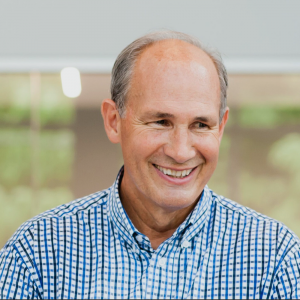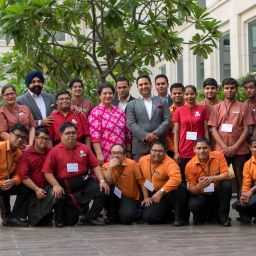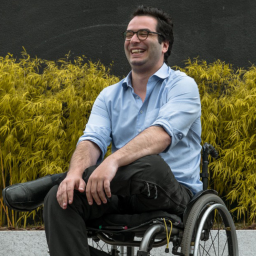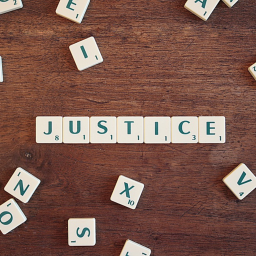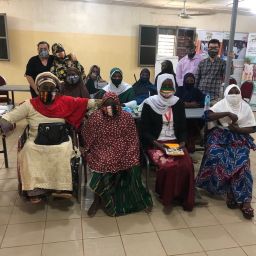Meaningful Business (MB:) What drove your interest in working with the Justice-impacted community in New Orleans?
Tatiana Begault (TB): From a very early age I have developed a heightened sense of justice. I wanted to better understand what leads to the development of a stronger, more resilient community and how I can become an active participant of solution-driven development. I came to discover that advocacy was the key to better understanding the needs of others. New Orleans has been impacted by a succession of negative natural and manmade events, from hurricanes and floods to massive incarcerations and social disparity. A statistic such as “over 680 individuals in prison for every 100,000 residents”, is a hard number to overlook.
The justice-impacted community is the part of the general population that has endured many of the consequences of a disrupted system, with systematic inequalities that impact everyone directly and indirectly. The more we learn about the system and its deficiencies, the better we can make corrections and collaborate to create a society that gives everyone a fair chance.
No one wants to be described or characterised for their worst day or their worst mistake. I want every child, every adult and every employer to have the social and emotional skills to promote efficient reintegration, directly encouraging families across the city and state to become safer, healthier and stronger. We ought to do better, individually, and collectively.
MB: Why is it so important that we remove barriers for people with criminal convictions and arrest records?
TB: Criminal records are by far one of the leading causes of social stagnation. To explain; small identifiable items, like an ID or a driver’s license, are taken for granted by many of us. However, for our Re-Entry brothers and sisters, it means that they are potentially unable to apply for better employment, leading to a better income, a better support system, better nutrition etc. These barriers promote recidivism, which leads to high costs and emotional distress. We rarely stop to contemplate the huge positive impact we can create by removing barriers from those who need the most support. It’s a socially conscious and fiscally responsible matter for all of us.
MB: What role do you think businesses can play in providing meaningful second chances?
TB: Businesses are the driving force of our economy and consequently the largest platform for advocacy. The humanisation of the hiring process is where we can value the individual behind the story, allowing the employer to define the employee by their recovery journey and not by their past transgressions. Second chance employers provide opportunities for the individual, as well as support a more inclusive community. Businesses across the city and surrounding areas have risen to the occasion and implemented personalised interview processes that allow for qualitative change. Their positive impact is measurable – we can witness the reduced rate of recidivism and the increase in family reunification.
Many employers are now well equipped with the ability and the desire to become an agent of positive change. Businesses have become the strongest and wisest of advocates for an improved community. They understand the power and the responsibility they hold to create and sustain a safer community for generations to come.
MB: What advice do you give to companies who are interested in creating a fairer and more equitable society through fair hiring practices?
TB: All companies interested in hiring second chances need to educate their team leaders in fair hiring practices and how to implement a more humane hiring process. Learn more about local and state-wide statistics, face the problems head on, check data and see the level of positive impact you will have by hiring community members waiting for the opportunity to serve your company. The better understanding we have, the more we can redefine the role we can play in reducing inequalities in society.
Tatiana Begault, Re-Entry Community Coordinator, Goodwill Industries International
MB: How would you respond to the reservations of reluctant employers?
TB: The employers that are hesitant to consider second chance hiring are ultimately employers that don’t fully grasp their responsibility within the community they intend to serve. They are likely not in touch with the needs and wants of their community members. Second chance hiring is the best and most efficient way to give back to the community and build up social resiliency. It is fiscally responsible and the most compassionate way to restructure the hiring process, helping to decrease inequalities, reduce recidivism, and increase a loyal workforce.
Federal tax incentives motivate some companies, are applicable nationwide and they can be utilised by small and larger organisations. There are also non-profit organisations that give training to second chances individuals so your company can benefit from having quality and skilled individuals eager to assist your growth.
We are most often hesitant when we don’t understand a subject, but the problem can be solved by creating business plans that include a diverse range of employees, and second chances individuals should be included. Businesses are not alone; government and non-government agencies are more than willing to give you the support you need to succeed in the hiring process.
MB: What steps can be taken at a policy level to break down barriers for re-entry?
JD: Advocacy! It is the key to social resiliency. Businesses’ support to initiatives such as Clean Slate will streamline the hiring, retention, and credentialing of second chances individuals. With the support of business we are able to showcase the positive impact of second chance hiring. Legislation gives the business the platform to implement fair hiring practices. Therefore, the support and encouragement of all business in legislative efforts it is what we need to move towards a more diverse, inclusive and safe community.
______
TO JOIN The reimagining justice COMMUNITY, APPLY TO BECOME A MEMBER OF MEANINGFUL BUSINESS HERE



